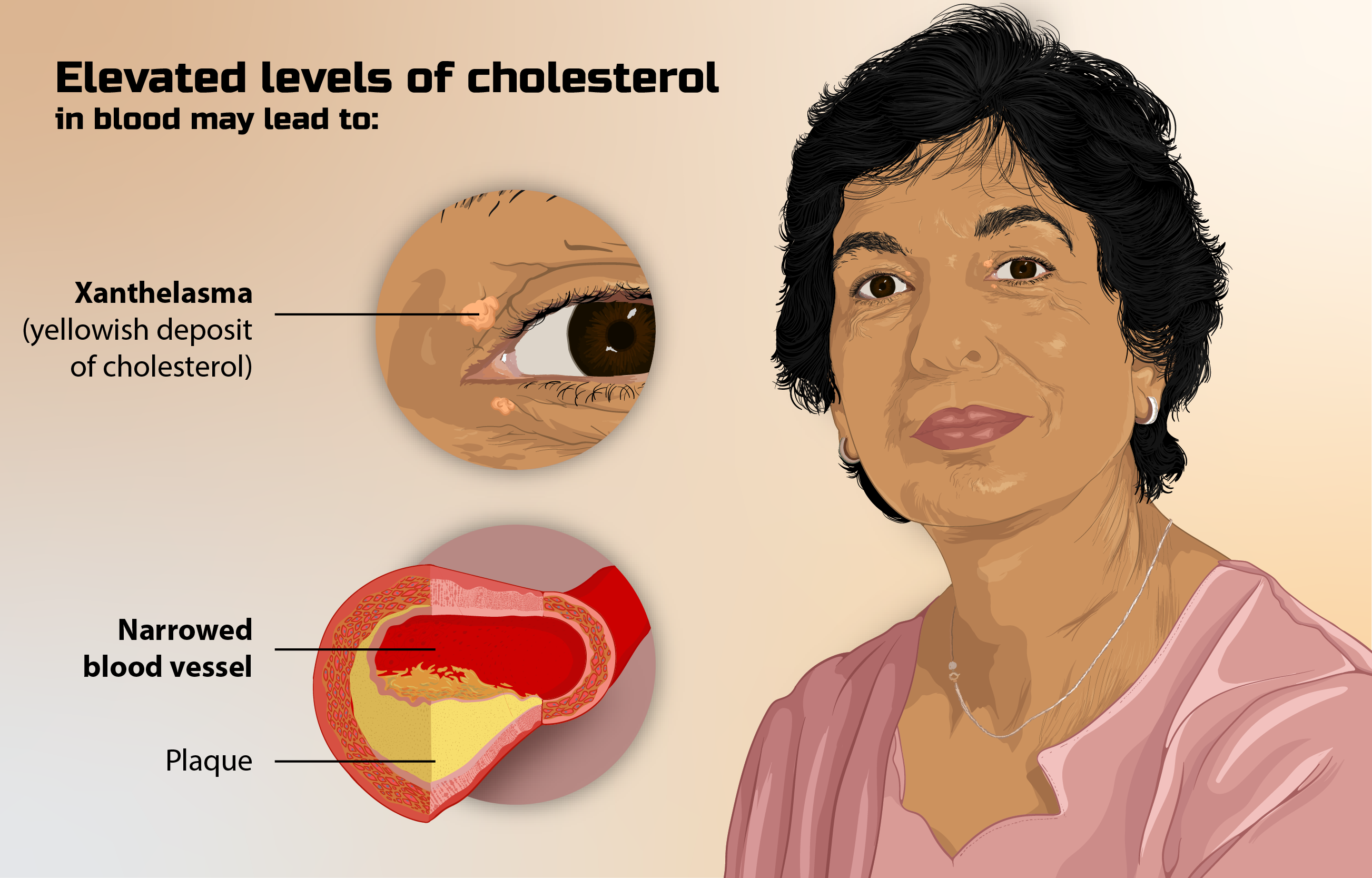What are foods that cause high cholesterol – In today’s fast-paced world, unhealthy eating habits have become all too common. One of the significant health concerns arising from poor dietary choices is high cholesterol. High cholesterol levels can significantly impact cardiovascular health and increase the risk of heart diseases. This article explores various foods that are known to cause high cholesterol and the steps individuals can take to maintain a healthy cholesterol level.
Understanding Cholesterol
Before delving into the foods that contribute to high cholesterol, it’s essential to understand what cholesterol is and its different types. Cholesterol is a waxy substance found in the blood and is crucial for various bodily functions. There are two primary types of cholesterol: low-density lipoprotein (LDL) and high-density lipoprotein (HDL). LDL cholesterol is often referred to as “bad cholesterol” because elevated levels can lead to the buildup of plaque in arteries, while HDL cholesterol, known as “good cholesterol,” helps remove LDL cholesterol from the bloodstream.
The Culprits: Foods that Increase Cholesterol Levels
- Saturated Fats: Foods high in saturated fats are major contributors to elevated cholesterol levels. These include red meat, full-fat dairy products, butter, and tropical oils like coconut oil. Consuming excessive amounts of saturated fats can lead to an increase in LDL cholesterol levels.
- Trans Fats: Trans fats are artificial fats commonly found in processed and fried foods, baked goods, and margarine. These fats not only raise LDL cholesterol but also lower HDL cholesterol levels, making them especially harmful to heart health.
- Dietary Cholesterol: While dietary cholesterol has less impact on blood cholesterol levels than saturated and trans fats, it can still contribute to increased cholesterol levels. Foods rich in dietary cholesterol include egg yolks, organ meats, and shellfish.
- Refined Carbohydrates: Refined carbohydrates, such as white bread, white rice, and sugary snacks, can lead to high cholesterol levels indirectly. These foods can cause weight gain and insulin resistance, negatively affecting cholesterol levels.
- Fast Foods: Fast foods are often laden with unhealthy fats, particularly trans fats, and are best avoided to maintain healthy cholesterol levels.
- Alcohol: Excessive alcohol consumption can lead to elevated triglyceride levels, which are associated with increased cholesterol levels.
Steps to Lower Cholesterol
- Incorporate Plant-Based Foods: Increase the consumption of fruits, vegetables, whole grains, and legumes. These foods are low in saturated fats and high in dietary fiber, which can help lower cholesterol levels.
- Choose Healthy Fats: Opt for sources of healthy fats, such as avocados, nuts, seeds, and olive oil. These fats can help raise HDL cholesterol levels while lowering LDL cholesterol.
- Limit Processed Foods: Minimize the intake of processed and fried foods, as they are often high in unhealthy fats and trans fats.
- Increase Physical Activity: Regular exercise can raise HDL cholesterol levels and improve overall cardiovascular health.
- Moderate Alcohol Consumption: If you choose to drink alcohol, do so in moderation to avoid negative effects on cholesterol levels.
Conclusion
Maintaining healthy cholesterol levels is crucial for overall well-being and reducing the risk of heart diseases. By making smart dietary choices, incorporating exercise, and being mindful of lifestyle habits, individuals can effectively manage their cholesterol levels. Remember, a heart-healthy diet consists of a variety of nutrient-rich foods, limited in unhealthy fats and cholesterol.
FAQs
- Can I completely eliminate cholesterol from my diet?
- While it’s challenging to eliminate cholesterol entirely, focusing on a diet low in saturated and trans fats can help manage cholesterol levels effectively.
- How often should I get my cholesterol levels checked?
- It’s recommended to get your cholesterol levels checked at least once every five years for adults above the age of 20, or more frequently if advised by a healthcare professional.
- Are all fats bad for cholesterol levels?
- No, not all fats are bad. Healthy fats found in foods like avocados, nuts, and olive oil can have a positive impact on cholesterol levels.
- Is high cholesterol only a concern for older individuals?
- No, high cholesterol can affect individuals of all ages. It’s essential to adopt healthy dietary habits from an early age to maintain optimal cholesterol levels.
- Can genetics play a role in high cholesterol levels?
- Yes, genetics can contribute to high cholesterol levels. If you have a family history of high cholesterol, it’s essential to be extra vigilant about your diet and lifestyle choices.




